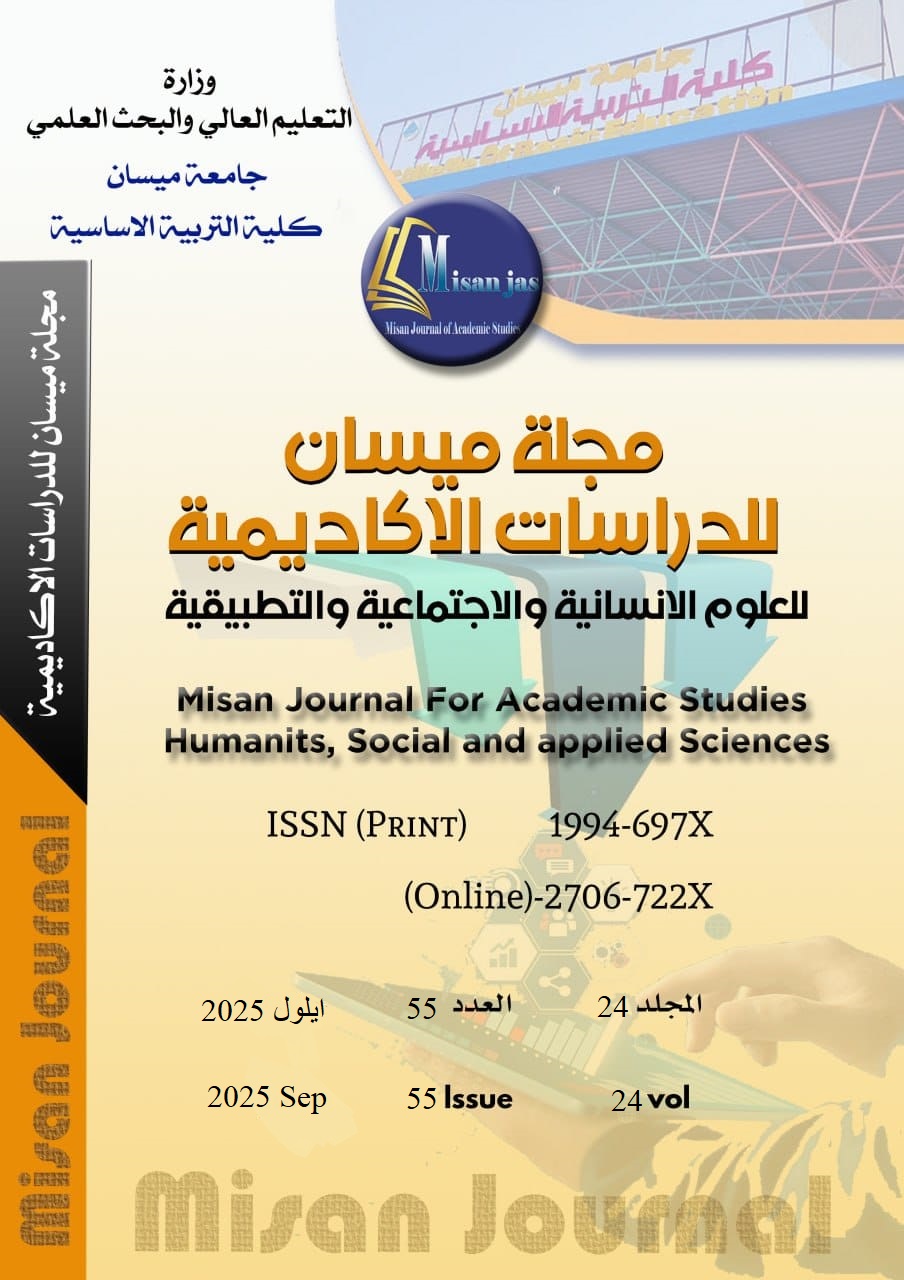Postcolonial Feminism and Political Injustice in Huda Barakat’s The Tiller of Waters
Abstract
This research offers a argumentative examination of femininity and political injustice in Huda Barakat’s The Tiller of Waters, a novel that unfolds within the chaotic landscape of the Lebanese Civil War· Through evocative prose and fragmented narrative structure, Barakat crafts a deeply symbolic exploration of how women navigate and endure the political and emotional ruins of conflict· Although the novel is narrated by a male protagonist, the presence and memory of women pervade the narrative, functioning as emblems of both loss and endurance· Also this research focuses on how the novel reconfigures traditional gender roles and challenges patriarchal authority by presenting feminine figures not as passive victims, but as silent yet resilient bearers of cultural and emotional continuity .The analysis highlights the subtle yet profound ways in which Barakat embeds femininity into the geography of war-torn Beirut through abandoned domestic spaces, dislocated familial bonds, and the unspoken emotional labor of memory preservation· Moreover, the research underscores how political injustice in the novel is not only tied to institutional failure but also to the erasure and marginalization of feminine voices and experiences . By weaving together themes of displacement, silence, trauma, and identity, The Tiller of Waters exposes the gendered dimensions of political turmoil and suggests that any true reckoning with injustice must include the often overlooked narratives of women. This research thus contributes to broader discussions on gender, memory, and resistance in Arabic war literature.By weaving together themes of displacement, silence, trauma, and identity, The Tiller of Waters exposes the gendered dimensions of political turmoil and suggests that any true reckoning with injustice must include the often overlooked narratives of women. In this way, the novel aligns with postcolonial feminist theory by showing how women’s silencing is tied to both patriarchal power and colonial legacies.
Downloads
Copyright (c) 2025 (Humanities, social and applied sciences) Misan Journal of Academic Studies

This work is licensed under a Creative Commons Attribution-NonCommercial-NoDerivatives 4.0 International License.
The copyright is also the copyright of the magazine only.
All articles published in our magazine are subject to license terms
Creative Commons Attribution(CC BY-NC-ND 4.0) This license permits the content to be reproduced, redistributed and reused in whole or in part for any purpose free of charge, without any permission from the author(s), researcher or student.
Works submitted to Maysan Journal of Academic Studies for publication in the journal (CC BY-NC-ND 4.0) license terms. Where available content can be shared, distributed and replicated provided there is no commercial profit and appropriate credit must be given to the original source through sources or citations. It is mandatory to review any material used from other sources including shapes, tables, and images for re-use under the terms of the Creative Commons License (CC BY-NC-ND 4.0).Provided that there is no modification to the original content



